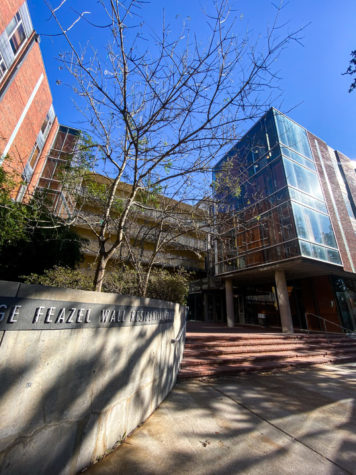OPINION | Honors Program promotes exclusivity, not academic curiosity

Tulane University’s admission process becomes more selective with each subsequent year. Only admitting 9.73% of applicants for the 2025 academic year, one could assume that Tulane believes that all admitted students are equally high-achieving and capable. Tulane’s Honors Program asserts that this is not the case.
According to its website, the First-Year Honors Scholars Experience is a “one-year experience designed to provide opportunities to explore and engage in Tulane’s academic culture.” As freshmen, Honors students must take “Colloquium” classes, rather than the typical Tulane Interdisciplinary Experience Seminar course, through which “distinguished faculty convey the importance of academic leadership and life-long learning in a small discussion-based seminar on a special topic.”
An admitted student cannot apply into the Honors program, as students are accepted to the program before they actually enroll at Tulane. This process implies that acceptance to the program is based solely on one’s general application to Tulane, which considers high school GPA, standardized test scores, submitted essays and extracurriculars.
Tulane Honors Scholars are described as students who are “highly curious, seek challenges, and show a desire to engage in rigorous thought that leads to extraordinary insights and ideas.” These attributes are highly subjective and cannot be measured by high school performance alone. High school students may be particularly focused on getting into college, rather than showcasing traits like academic curiosity.
The goal of the Honors program is to provide students the opportunity to challenge their intellect amongst other eager and inquisitive Honors students. However, the experience of the Honors program, and the criteria for admission, seem counterproductive to its goal. Secluding students in special classes based on high school statistics does not spread academic curiosity, but rather creates an unnecessarily competitive and exclusionary environment.
Dean Lee Skinner describes the Honors experience by saying: “Our new scholars will also have several options to live with each other in small communities designed around common academic themes and interests. Through first-year seminars and informal gatherings, first-year students will explore the many opportunities our elite research institution offers them with our most dynamic faculty members as their guides.”
Skinner describes small and exclusive groups, which seems to contradict some of Tulane’s other messages, which promote diverse experiences, community building and equal opportunity. How, then, does the Honors experience challenge the intellect of students or make a more enriched learning environment?
Skinner also claims that the Honors experience will “increase the opportunities available for all of our high-achieving undergraduate students.” This statement begets numerous questions. Are Honors students Tulane’s only high-achieving students? How does Tulane regard its other students and why is their access to seemingly highly-esteemed learning opportunities inhibited?
Further, first-year Honors students comprise the majority of Wall Residence Hall, the Residential Learning Community of the Honors Program. While intended to provide “scholarly engagement as a goal for all high-achieving students” and act as a “collaborative, intellectual, and close-knit social community with a focus on academic enrichment and excellence,” Wall’s exclusivity may just cut off Honors students from others who want to take part in an intense academic and residential experience but were not granted admission into the Honors program.
Some aspects of the Honors Program are more inclusive, like the Honors Thesis. Seniors, with a cumulative GPA of 3.4 or higher, and 3.5 or higher within their major, are eligible to research and study a topic of their choice within their major under the advice of a faculty advisor.
This aspect of the program proves to be more aligned with the stated goals of the Honors Program, as it allows high-achieving students to choose an academic endeavor that they feel they are prepared to tackle. Because an Honors thesis is a senior-year project, students have hopefully had time to seek out niche academic and intellectual opportunities and showcase the stated values of the program.
It is a noble goal to reward high-achieving admitted students with the prestige of the Honors program. However, in practice, the program does not offer much except the feeling of an elevated status.
As students enter college, they should feel equal to their peers. Higher education provides students with a clean academic slate, in which they can prove their merit based on their own choices and hard work.
Tulane is a highly selective, private university with plenty of academically gifted students. As each incoming class seems more impressive than the last, Tulane does all of its students a disservice by promoting exclusionary academic hierarchies.
Honors students, selected for their exceptionally curious and bright minds, might like to mingle with their non-honors counterparts, admitted to Tulane for showcasing these same qualities.
Your donation will support the student journalists of Tulane University. Your contribution will allow us to purchase equipment and cover our annual website hosting costs.



Richrd Lee • Nov 4, 2021 at 3:48 pm
Honors Programs are not encouraging anything except the highest standards of scholarship. There is constantly the argument that some are excluded on some nebulous standard. NO! Honors are for those students who have demonstrated the highest grades in their high school courses and the most demanding courses.Not every student is equal. Some are smarter than others- that is reality.That is not an insult. Life is not equal and never will be. Some make large sums of money, some invent devices, some are innovative – that doesn’t mean every person is a dolt if they don’t achieve billionaire status. Do the best- that should be a student goal.